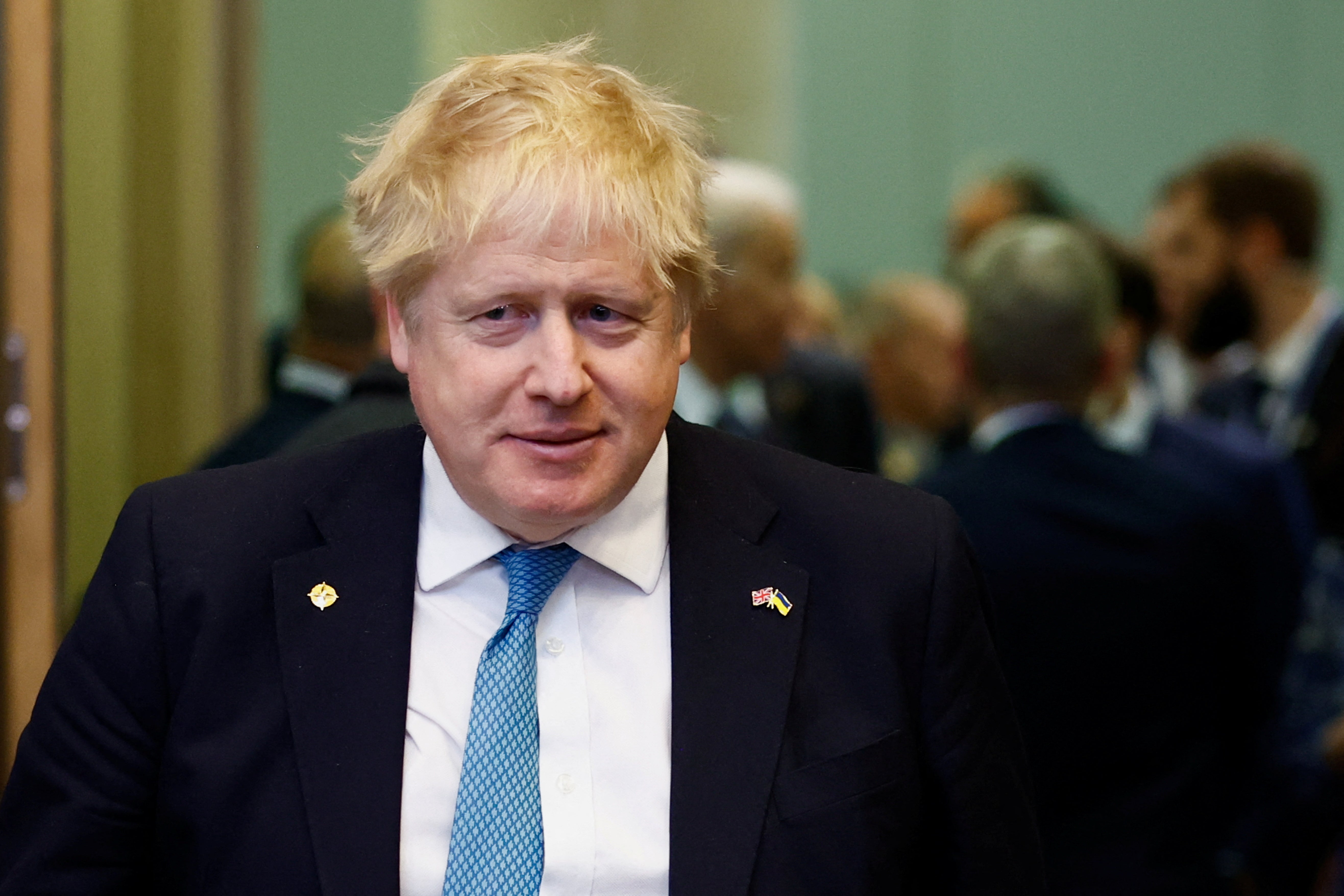Boris Johnson described Brexit as a fight for freedom – but has it made us more free?
At the heart of the Brexit project is the impulse to rein in freedoms, to erect barriers to trade and impose limits on the movement of people, writes Andrew Woodcock


Boris Johnson was called out by leaders across Europe for his crass comparison of Brexit with the war in Ukraine, with many voicing incredulity at his implication that the desperate military struggle against Russian invaders shared any similarity with voting in a referendum.
But there was another aspect of his comment which was equally questionable and highly revealing about his political strategy, and that was his suggestion that Brexiteers and Ukrainians were united in being motivated by the desire for “freedom”.
It’s the kind of comment Johnson makes repeatedly, linking his political projects with positive values as if there were some sort of natural connection between them.
It recalls the efforts of Brexiteers to claim the mantle of “patriotism” for a policy which by many people’s estimation was likely to make Britain poorer, weaker and less influential, to offend its allies and please its enemies.
And it’s a comparison that will rankle with millions of voters who wanted to stay in the EU precisely because of the freedoms that membership grants, and who are annoyed at the loss of freedom that they have suffered since Brexit took effect.
Whether it’s the freedom to live, work and study in 27 European nations, the freedom to trade easily and to buy goods from Europe without red tape and charges, the freedom to visit the EU for more than 90 days without a visa, the freedom to take your pet dog overseas without having to warn your vet four months in advance or the freedom to use a mobile phone without worrying about roaming charges, most of the impacts of Brexit felt on a day-to-day basis involve the loss of liberty – not its extension.
And, of course, this is no surprise. The EU’s single market after all is constructed on the principle of the “four freedoms” of movement for goods, capital, people and services. While the project has never been perfect, the driving force behind it has been to remove obstacles to freedom, like customs forms, border checks, visas and tariffs.
At the heart of the Brexit project, by contrast, is the impulse to rein in freedoms, to erect barriers to trade and impose limits on the movement of people.
Its totemic figures since Mr Johnson “got Brexit done” in January 2020 have been the border guard and immigration officer, the lorry drivers stuck in queues and the EU nationals facing uncertainty over whether they will be allowed to remain in the UK.
To keep up to speed with all the latest opinions and comment, sign up to our free weekly Voices Dispatches newsletter by clicking here
Ministers trumpet the notional freedom to amend the UK’s domestic regulations and shake off Brussels rules, but have so far done little to put this into effect. “Brexit opportunities” minister Jacob Rees-Mogg was reduced to appealing in a newspaper for readers to suggest ideas for regulations he could change.
Now, it is of course entirely legitimate politically to opt for a reduction in freedom. It is quite possible that many of those who backed Brexit in 2016 wanted more control on the movements of people and capital which have resulted from the process of globalisation.
But to suggest that Brexit was a struggle for freedom is bound to grate on voters who find that its implementation has left their lives more cramped and less free.
Yours,
Andrew Woodcock
Political editor
Join our commenting forum
Join thought-provoking conversations, follow other Independent readers and see their replies
Comments
Bookmark popover
Removed from bookmarks